
After Denmark in 2023 and Portugal in 2024, the annual DASH thematic workshop 2025 will take place in Germany from 19 to 23 May. Make sure to put these dates in your calendars

In September, Dejan Doljak, from the Geographical Institute “Jovan Cvijić” SASA, visited Vila Nova de Gaia, Portugal. Ricardo and João, from the local municipal housing company, Gaiurb, showed him some of the work done by Gaiurb in different neighborhoods there.
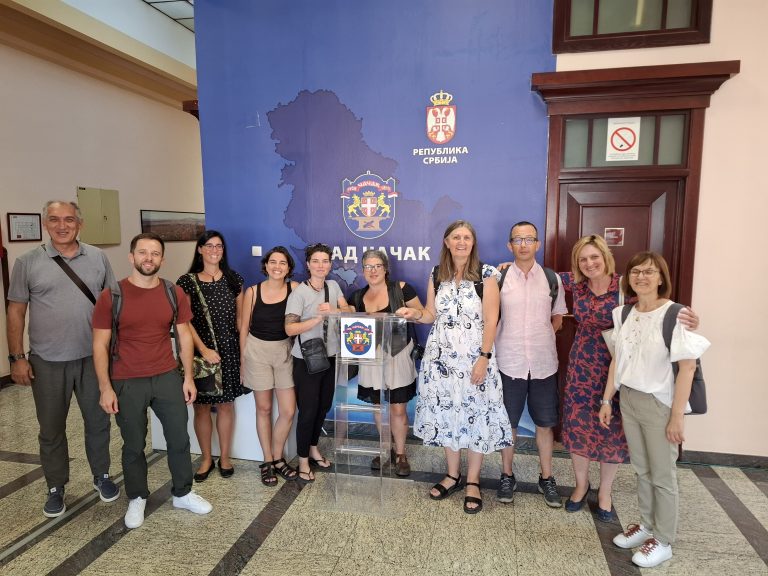
On August 15th, 2024, the DASH team visited the city of Čačak as part of their secondment activities in Serbia. The visit was organized by two DASH consortium members, the City Housing Agency Čačak (CHAC) and the Geographical Institute “Jovan Cvijić” SANU. As guests of the municipality, the team had the opportunity to visit social housing projects in different neighbourhoods of the city and get a sense of the various housing options that are provided in Serbia to different vulnerable low-income groups.

In August 2024, four DASHers attended the ENHR conference in Delft, focusing on Making Housing Systems Work: Evidence and solutions. We participated with presentations as well as the coordination of workshops. A very fruitful outlet for DASH work and great inspiration for future work.

A large number of experts from Serbia and abroad, usually numbering over 150, attend this conference. Attendees include those working in professions related to planning, spatial planning and land administration management, as well as managers and employees of state and local self-government bodies, employees of universities, private companies, non-governmental organizations and civil society representatives.

In October, four AAU researchers (Lene Wiell Nordberg, Rikke Skovgaard Nielsen, Claus Bech-Danielsen and Hans Thor Andersen) visited Potsdam and Berlin to learn about co-housing in Germany.
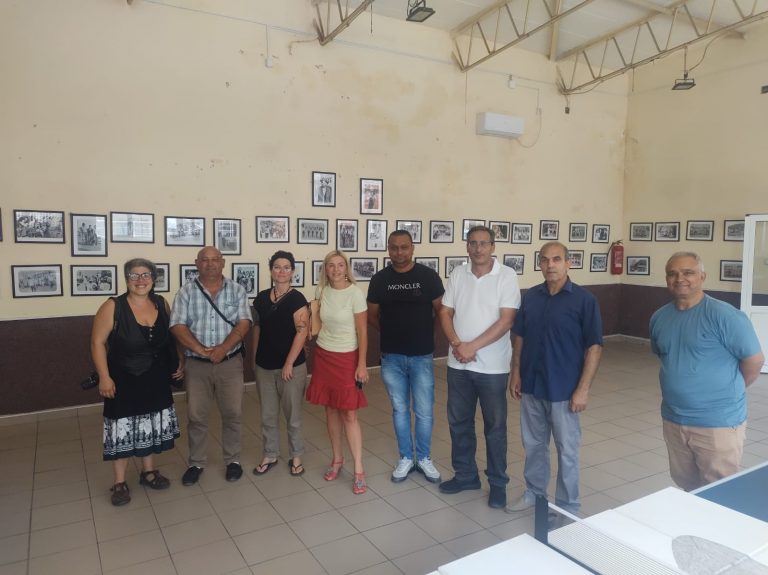
Two members of the Housing and Building Section of Minga visited the city of Leskovac, in the South of Serbia, where they were received by Ivana Momić of the Public Enterprise for Urbanism and Construction of Leskovac. The Portuguese team members’ goal in visiting the city was to learn more about the participatory planning project implemented in the neighbourhood of Slavko Zlatanov by Zlata Vuksanović-Macura from the Geographical Institute “Jovan Cvijić” SANU, which aims to ensure that excluded communities can genuinely participate in the debate about, and construction of, their urban neighbourhood.
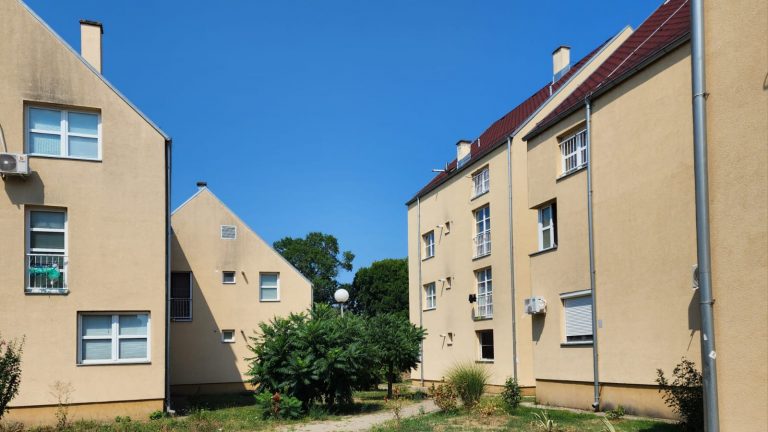
In August 2024, four Minga members undertook a secondment in Serbia. During this time, we engaged in discussions about social inclusion in non-profit housing that were specifically focused on who the vulnerable populations are that are included in Serbia’s social housing. To better understand the various historical, social, economic, and geographical factors affecting vulnerable populations in both countries, we began collecting insights for a potential future study with DASH partners. Comparative analysis can hopefully give us a better understanding of cooperatives’ role in public-private, non-profit partnerships. During our secondment in Serbia, we explored, amongst other topics, the example set by Serbia in explicitly naming those social vulnerabilities that justify public intervention. We will continue exploring this subject, relating it to possible strategies for enabling vulnerable-and non-vulnerable populations to cohabit, which requires us to understand the vulnerabilities that we are dealing with.
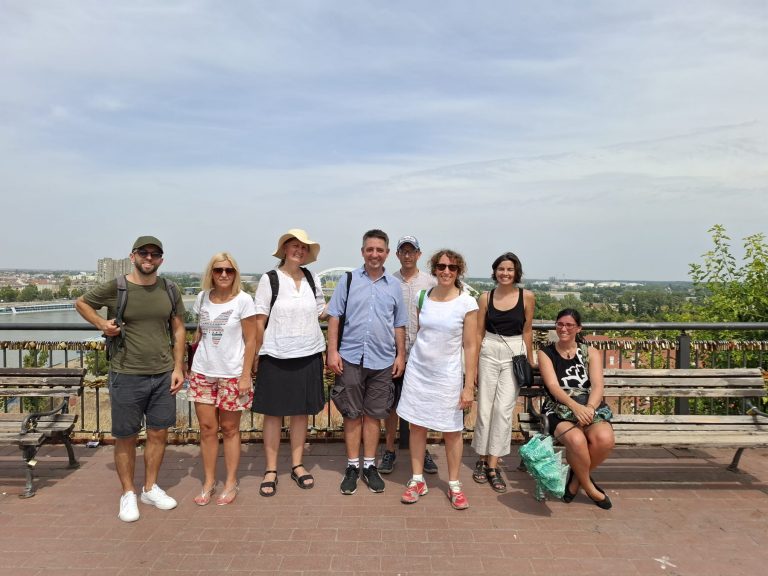
On 17th August 2024, during the DASH team secondment in Serbia, the Association for Innovative Forms of Housing and Living (INWOLE) and the Association of Urban Planners of Serbia (SUPA) organized a field trip and tour of Novi Sad, in which all the DASH team members participated. During the field trip, DASH member Petar Atanacković explained the city’s urban history. The day ended with a visit to the youth center CK13.
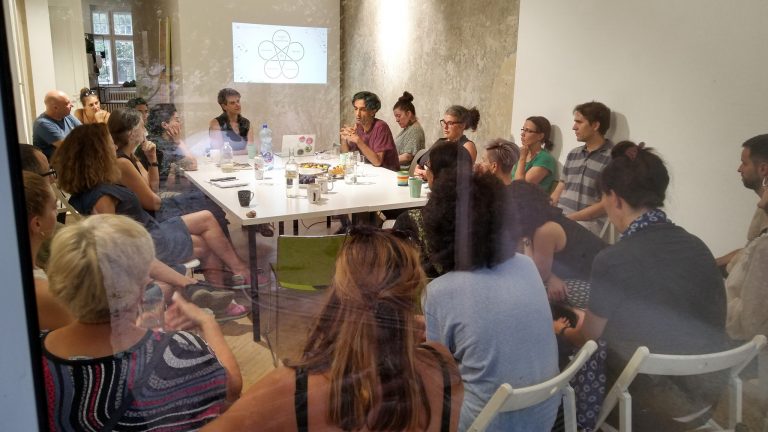
On August 8, DASH partner Cooperativa Integral Minga met with KO GRADI GRAD at the Geographical Institute “Jovan Cvijić” SANU. The meeting centered on the establishment and operation of housing cooperatives, highlighting our shared commitment to addressing pressing challenges such as housing shortages and community development. The participants explored transformative, community-led solutions rooted in grassroots efforts; discussed recent legislative reforms in Portugal that promise to create a more supportive environment for next-generation housing cooperatives; and identified a common challenge: the lack of financial mechanisms to support community-based housing projects.










